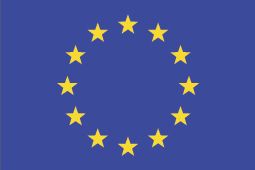- within Transport, Antitrust/Competition Law and Privacy topic(s)
With companies' sustainability reporting under ever-increasing scrutiny from shareholders, stakeholders, regulators and activists, we look at the forthcoming implementation of new sustainability reporting standards under ISSB in the UK and consider what companies should do to prepare.
The past decade has seen a surge in public interest in companies' ESG credentials and an upswell in sustainability reporting requirements. Behind this sits a whole host of new regulatory frameworks, recommendations and reporting guidelines that make up the "alphabet soup" that is so often referred to in this context. Indeed, today's sustainability reporting landscape resembles a wildflower meadow: replete with all sorts of different species at varying stages of maturity, tricky to navigate successfully and perhaps a little out of control.
Formed at COP26 in 2021, the International Sustainability Standards Board (ISSB) was created as an independent standard-setting body within the International Financial Reporting Standards (IFRS) Foundation. Its goal is to bring the same level of rigour and significance to sustainability and other non-financial reporting as to financial disclosures.
Rather than providing companies with yet another acronym and set of standards to digest, the ISSB's reporting standards are driven by a desire to consolidate and streamline various other sustainability-reporting frameworks, including the Taskforce on Climate-related Financial Disclosures (TCFD) Recommendations, Sustainability Accounting Standards Board Standards, Climate Disclosure Standards Board Framework, World Economic Forum Metrics and the IFRS' own Integrated Reporting Framework.
The ISSB standards
In June 2023, the ISSB issued final versions of two new sustainability reporting standards: IFRS S1, which sets out various general requirements for sustainability-related disclosures (IFRS S1); and IFRS S2, which includes specific climate-related disclosure requirements (IFRS S2).
Today's sustainability reporting landscape resembles a wildflower meadow: replete with all sorts of different species at varying stages of maturity, tricky to navigate successfully and perhaps a little out of control."
Caroline Hagg
Senior Associate
IFRS S1 and S2 are intended to be just the start of a raft of new reporting standards to be issued by ISSB in due course on other sustainability-related topics beyond climate. For example, it is expected that a future IFRS reporting standard will cover information about sustainability-related risks and opportunities associated with biopersity, ecosystems and ecosystem services.
IFRS S1: General requirements for disclosures on sustainability-related financial information1
IFRS S1 prescribes "core content" disclosures oriented around four broad thematic areas (or pillars), which will be familiar to companies that already report against the TCFD's four recommendations:
- Governance: the governance processes, controls and procedures used to monitor and manage sustainability-related risks and opportunities;
- Strategy: the approach used to manage sustainability-related risks and opportunities;
- Risk management: the processes used to identify, assess, prioritise and monitor sustainability-related risks and opportunities; and
- Metrics and targets: performance in relation to sustainability-related risks and opportunities, including progress towards any targets set on a voluntary or mandatory basis.
In addition to these substantive content requirements, IFRS S1 also includes various conceptual foundations that all companies should follow when making sustainability-related disclosures. These include:
- Fair presentation: the disclosures should provide a complete, neutral and accurate description of the risks and opportunities that could reasonably be expected to affect the company's prospects (meaning its cash flows, access to finance or cost of capital over the short-, medium- or long-term).
- Materiality: the disclosures should include material information. This means information which, if it were omitted, misstated or obscured, could reasonably be expected to influence decisions by investors. Note that this differs from other definitions of materiality, including the novel double materiality assessment required under the EU's Corporate Sustainability Reporting Directive (CSRD) (see Interaction with the EU's approach to sustainability reporting).
- Connected information: disclosures should be structured to allow readers to understand the connections: between different sustainability-related risks and opportunities; between the disclosures made under each of the four pillars; and across the sustainability disclosures and the company's reporting more generally (including the financial statements).
IFRS S2: Climate-related disclosures2
IFRS S2 is oriented around the same four pillars as IFRS S1 but focuses on climate-related physical and transition risks and opportunities for companies.
IFRS S2 is similar to, but not the same as, the TCFD's eleven recommended disclosures. IFRS S2 requires the disclosure of more detailed – and in some areas, additional – information compared to the TCFD's recommended disclosures and the guidance that accompanies the TCFD framework. The ISSB has therefore produced a comparison table summarising the similarities and differences between IFRS S2 and the TCFD's recommended disclosures to assist companies in identifying areas that may require additional focus when preparing to report.3
IFRS S2 is intended to be read alongside IFRS S1 as the conceptual foundations described above equally apply to disclosures made under IFRS S2.
It is worth noting that the ISSB is consulting on certain technical changes to IFRS S2, which aim to provide additional relief and clarity on specific greenhouse gas emissions disclosure requirements.4 Countries that have already adopted IFRS S2, or that are in the process of incorporating it into their domestic regimes (see Implementation of ISSB in the UK), will therefore need to consider whether to reflect the ISSB's proposals in light of the ISSB's aim to create a simplified, global baseline for reporting.
Implementation of ISSB in the UK
IFRS S1 and IFRS S2 are international voluntary standards and so do not automatically apply to companies. Accordingly, the ISSB standards will only have legal effect in a particular jurisdiction if implemented into domestic law.
In June 2025, the UK government launched a consultation on an exposure draft of the two new UK Sustainability Reporting Standards (UK SRS) based on IFRS S1 and S25 – joining around 20 jurisdictions currently actively consulting on adopting on the standards, in addition to the similar number that have already adopted IFRS S1 and S2 into their own reporting frameworks, including Australia (see An Australian perspective on implementing ISSB).6
The UK SRS, as set out in the June 2025 exposure draft, track very closely the content of IFRS S1 and IFRS S2 as published by the ISSB, with only a few minor amendments proposed following recommendations from the UK Sustainability Disclosure Technical Advisory Committee (the TAC) and the UK Sustainability Disclosure Policy and Implementation Committee (the PIC). The proposed amendments are for the most part technical in nature and include:
- A transitional relief provision that would allow entities to phase their reporting under the UK SRS, meaning that companies would only need to report on climate-related risks and opportunities in years 1 and 2 of mandatory reporting (with reporting on Scope 3 emissions only required in year 2), with reporting on wider sustainability-related risks and opportunities being required from year 3 onwards (providing an additional year's grace period for wider sustainability-related reporting compared to IFRS S1).
- A requirement for companies to report on wider sustainability-related risks at the same time as their financial statements (as opposed to the possibility of reporting at a later time during the first year of reporting, as is permitted under IFRS S1).
- No specific requirement for companies to refer to and consider the applicability of various additional materials originally published by the Sustainability Accounting Standards Board that accompany IFRS S1 and IFRS S2 (in contrast to the requirement set out in IFRS S1 and IFRS S2).
The consultation is due to close on 17 September 2025, following which the UK SRS will be finalised and endorsed. The implementation date for reporting in accordance with the UK SRS will be determined in due course.
Once the UK SRS have been finalised, the Financial Conduct Authority (FCA) is then expected to consult on changing the UK Listing Rules to replace the existing TCFD-aligned reporting requirement for listed companies with a requirement to report against the UK SRS. This consultation is expected to take place during autumn 2025, with the new rules likely to enter into force with effect for financial years beginning on or after 1 January 2026 at the earliest (although the FCA may decide a longer transition period is required).
In its current consultation, the UK government is also seeking views as to whether other "economically significant companies" should be required to report against UK SRS. Depending on the feedback received, additional legislation may be brought forward in due course to make changes to, for example, the climate-related disclosures required in the non-financial and sustainability information statement under the Companies Act 2006.
At the same time as consulting on the UK SRS, the UK government is consulting on two other related matters. First, on how transition plan disclosure requirements could be introduced for UK-regulated financial institutions and FTSE 100 companies, including requirements based on the Transition Plan Taskforce disclosure framework, and how those requirements could sit alongside the UK SRS. Second, in relation to sustainability assurance, the UK government proposes to introduce a regulatory oversight regime for sustainability assurance providers, including a voluntary registration requirement.
|
An Australian perspective on implementing ISSBIn September 2024, the Australian Government passed the Treasury Laws Amendments (Financial Market Infrastructure and Other Measures) Act 2024 (Act), marking the official introduction of mandatory climate-related financial disclosure obligations in Australia. The obligations apply on a phased basis for financial years beginning on or after 1 January 2025, depending on the size or emissions of the reporting entity. Soon after the Act was passed, the Australian Accounting Standards Board released the Australian Sustainability Reporting Standards (ASRS) which comprise AASB S1, a voluntary standard relating to the disclosure of sustainability-related information, and AASB S2, which covers the mandatory climate-related disclosure requirements. These standards mirror IFRS S1 and S2 respectively, albeit with some modifications – meaning that Australia's mandatory climate reporting regime is principally informed by, but not identical to, IFRS S2. Key modifications in AASB S2 from IFRS S2 include:
The Australian Securities and Investments Commission (ASIC) has published further regulatory guidance (Regulatory Guide 280), recommending that preparers and users of sustainability reports continue to refer to guidance published by the ISSB to assist in complying with climate-related disclosures required by AASB S2. |
Next steps to prepare
Even though UK SRS have not yet been finalised, the direction of travel is clear and so there are plenty of practical steps companies can take to get ready for the UK's ISSB-based sustainability reporting requirements.
Even though UK SRS have not yet been finalised, the direction of travel is clear and so there are plenty of practical steps companies can take to get ready for the UK's ISSB-based sustainability reporting requirements."
Jannis Bille
UK Head of ESG
- Mind the gap: Consider reviewing the existing
reporting suite, both in terms of its published content and the
underlying information-gathering processes, to assess readiness to
report under UK SRS. In particular, it is worth looking at:
- Existing TCFD-aligned or other climate-related disclosures compared to the requirements under IFRS S2.
- Any broader sustainability-related reporting disclosures compared to IFRS S1 – even if relatively little is made public, it will be important to consider what processes, controls environment and data collection procedures are already in place (and will be needed) to report effectively against IFRS S1.
- The extent of interoperability with other applicable disclosure regimes – such as the European Sustainability Reporting Standards associated with EU CSRD (on which ISSB has published specific interoperability guidance7).
- What changes to policies and practices may be required in order to report effectively in accordance with IFRS S1 and S2 – for example, are any changes required to sustainability governance structure or procedures or risk management processes or procedures.
- Getting ready to write: Ensure that appropriate training is provided to those who will be tasked with preparing the disclosures. Writing copy for a public-facing report is a specific task – different to internal comms or other briefings – and comes with considerably higher potential risks and liabilities. Authors should be aware of not just the reporting requirements they need to meet, but also how to avoid common pitfalls that could lead to accusations of greenwashing or socialwashing.
- Assurance: Consider whether to seek assurance for sustainability reporting, either by upskilling the internal audit team or calling on external resource. Although it remains unclear whether UK SRS will mandate third-party assurance, a number of companies that produce sustainability disclosures on a voluntary basis already obtain limited third-party assurance as a matter of good practice. Groups with companies in scope of CSRD should consider the assurance requirements it contains (see Interaction with the EU's approach to sustainability reporting).
- Stay in the know: Keep an eye out for further updates on the UK SRS endorsement process and the forthcoming FCA consultation, as well as any wider UK Government consultations that may be proposed. In particular, pay attention to any transitional provisions that may apply which could help to smooth the path towards compliance.
- Guidance, guidance, guidance: As part of its endorsement recommendation, the TAC recommended that the ISSB develop additional guidance on various elements of IFRS S1 and IFRS S2 to assist those companies reporting against them (or similar standards, such as the UK SRS) with implementing the reporting requirements. The IFRS Foundation has already published some guidance (Disclosing information about an entity's climate-related transition, including information about transition plans)8 and it is expected that further guidance will be published on the new regime in due course.
|
Interaction with the EU's approach to sustainability reportingInstead of following the ISSB's approach to sustainability reporting, the European Union launched its own Corporate Sustainability Reporting Directive (CSRD), requiring companies to report under the European Sustainability Reporting Standards (ESRS). The ESRS include:
The key difference between the CSRD and ISSB relates to the assessment of materiality, as CSRD introduces a novel double materiality approach. This requires reporting based on both impact materiality (the company's impact on people / environment / climate) and financial materiality (the impact on the company's financial performance and position). Disclosure under the ISSB standards on the other hand are based only on financial materiality. The ESRS also prescribe detailed disclosures on material impacts on a company's value chain, in contrast to the ISSB's more limited disclosures. In February 2025, during the first year of reporting under the CSRD's phased implementation timetable, the EU Commission published the Sustainability Omnibus Package, proposing a delay to implementation and amendments to the wider CSRD framework. Key proposed changes include raising the applicability threshold (thereby significantly reducing the number of in-scope companies), removing sector-specific standards and limiting value chain reporting obligations. If these proposals are implemented, they could potentially increase alignment between CSRD and ISSB. |
Footnotes
1. Available here: https://www.ifrs.org/issued-standards/ifrs-sustainability-standards-navigator/ifrs-s1-general-requirements/#standard
2. Available here: https://www.ifrs.org/issued-standards/ifrs-sustainability-standards-navigator/ifrs-s2-climate-related-disclosures/#standard
3. Available here: https://www.ifrs.org/content/dam/ifrs/supporting-implementation/ifrs-s2/ifrs-s2-comparison-tcfd.pdf
4. "ISSB publishes Exposure Draft proposing targeted amendments to IFRS S2 to ease application for companies", ISSB – available here: https://www.ifrs.org/news-and-events/news/2025/04/issb-publishes-exposure-draft-targeted-amendments-s2/
5. Available here:
https://assets.publishing.service.gov.uk/media/consultation_exposure_draft_of_uk_sustainability_reporting_standards_uk_srs_s1_and_uk_srs_s2.pdf
6. "Global Interest in ISSB Standards Rises Amid EU Uncertainty", ISS Corporate – available here: https://www.iss-corporate.com/library/global-interest-in-issb-standards-rises-amid-eu-uncertainty/
7. Available here: https://www.ifrs.org/content/dam/ifrs/supporting-implementation/issb-standards/esrs-issb-standards-interoperability-guidance.pdf
8. Available here: https://www.ifrs.org/news-and-events/news/2025/06/ifrs-publishes-guidance-disclosures-transition-plans/
The content of this article is intended to provide a general guide to the subject matter. Specialist advice should be sought about your specific circumstances.








